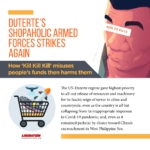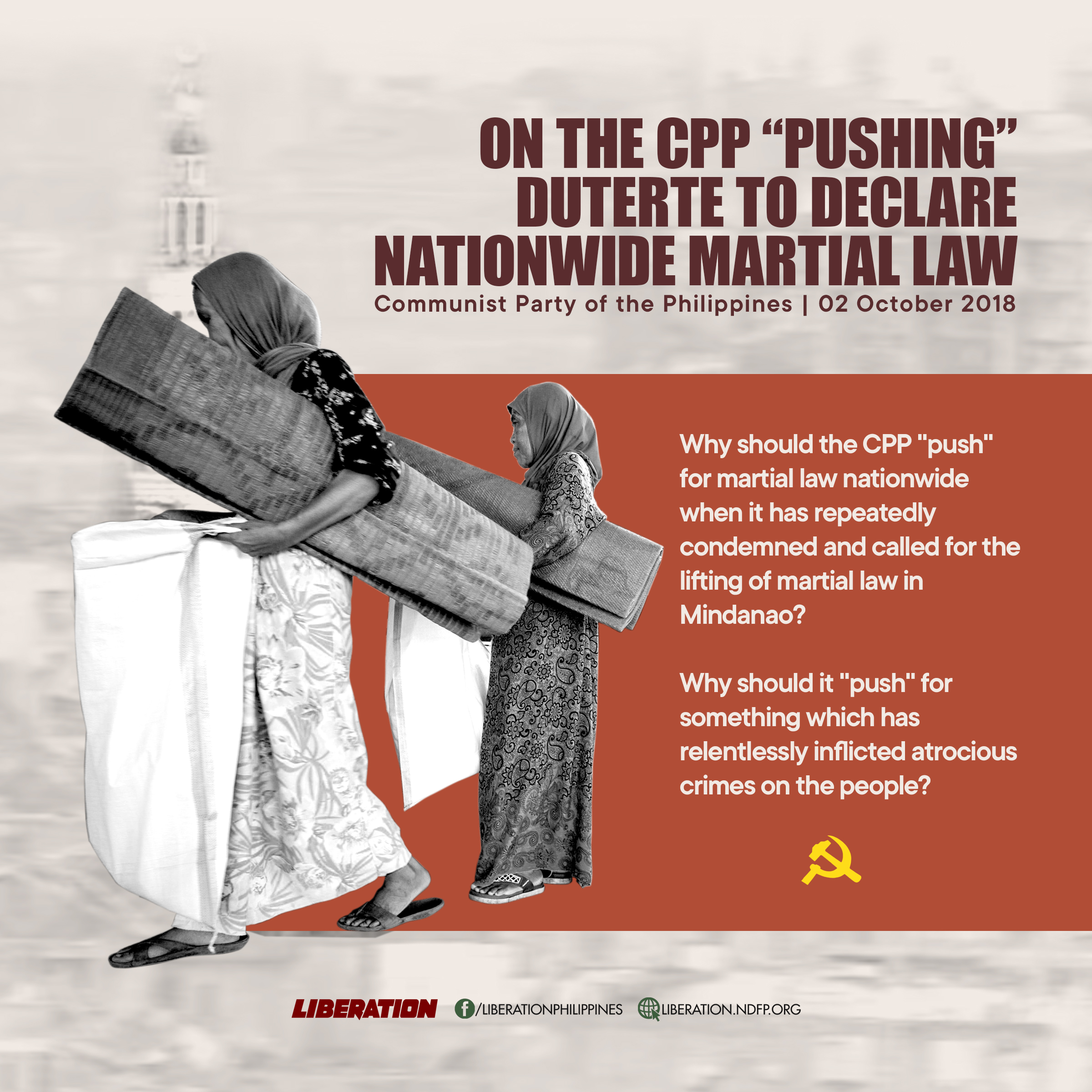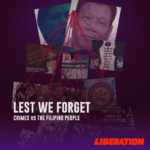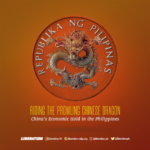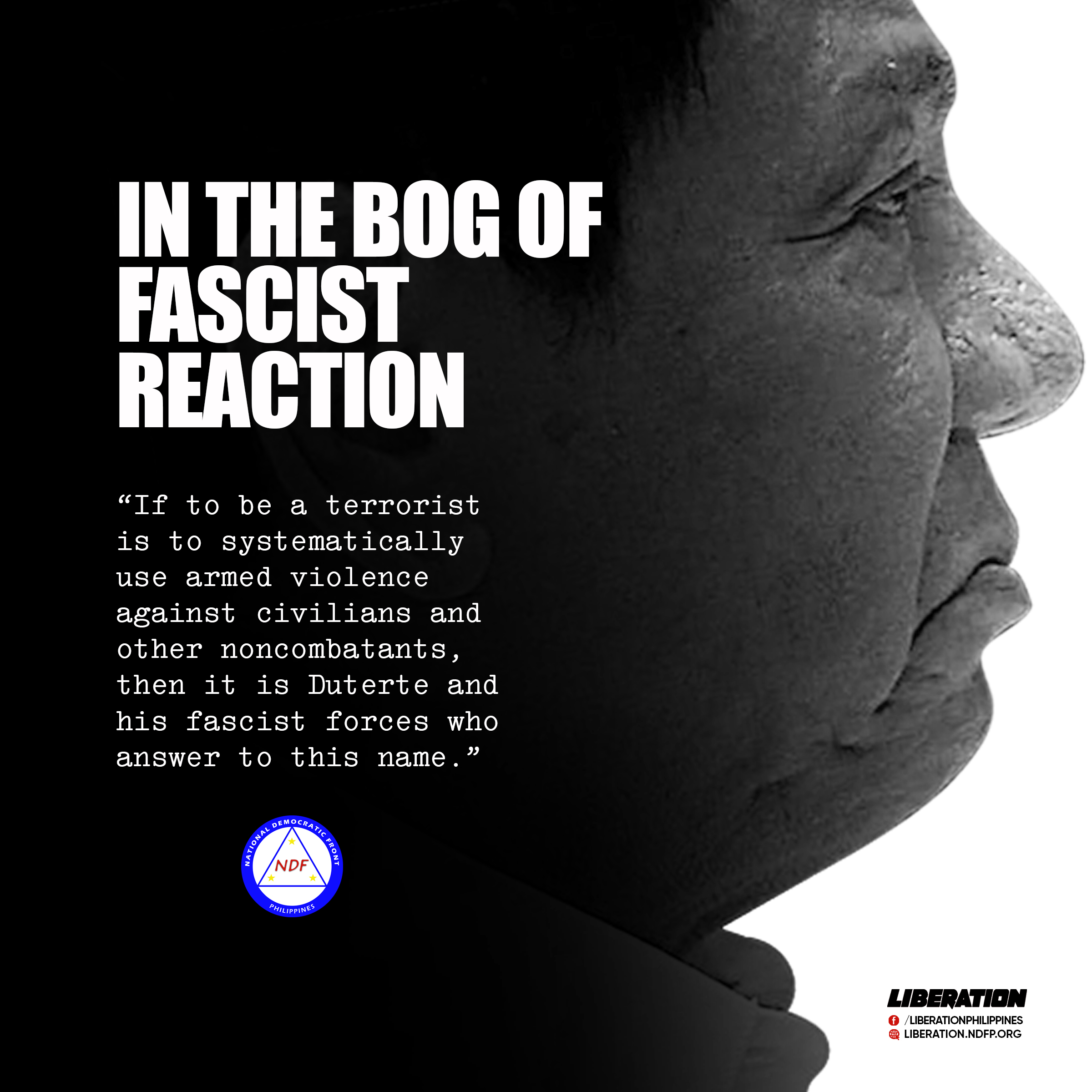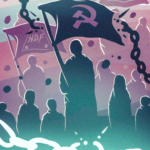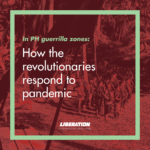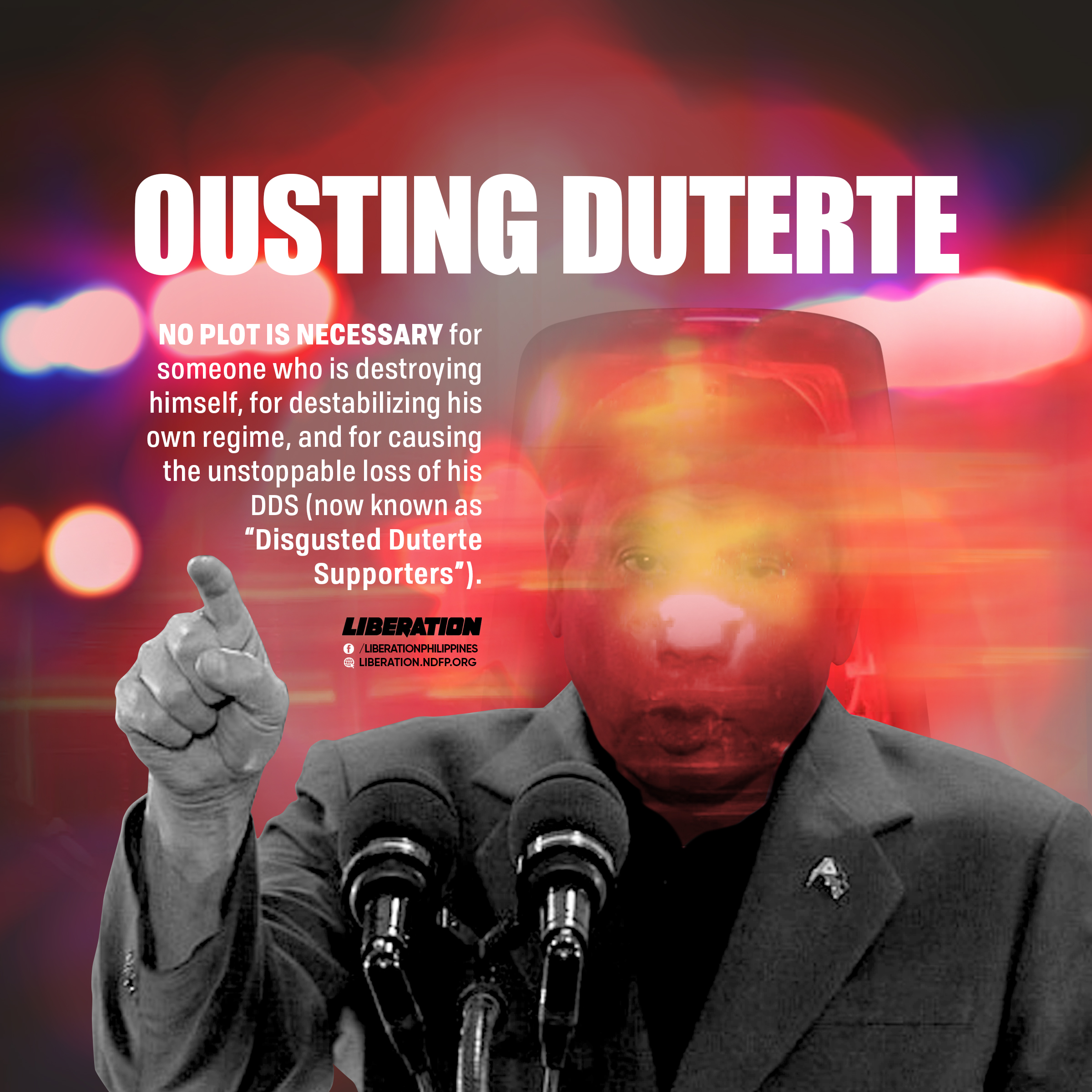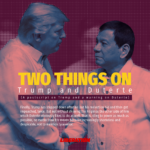OF COMMUNISTS AND PLOTS: Does the military know what it’s talking about?
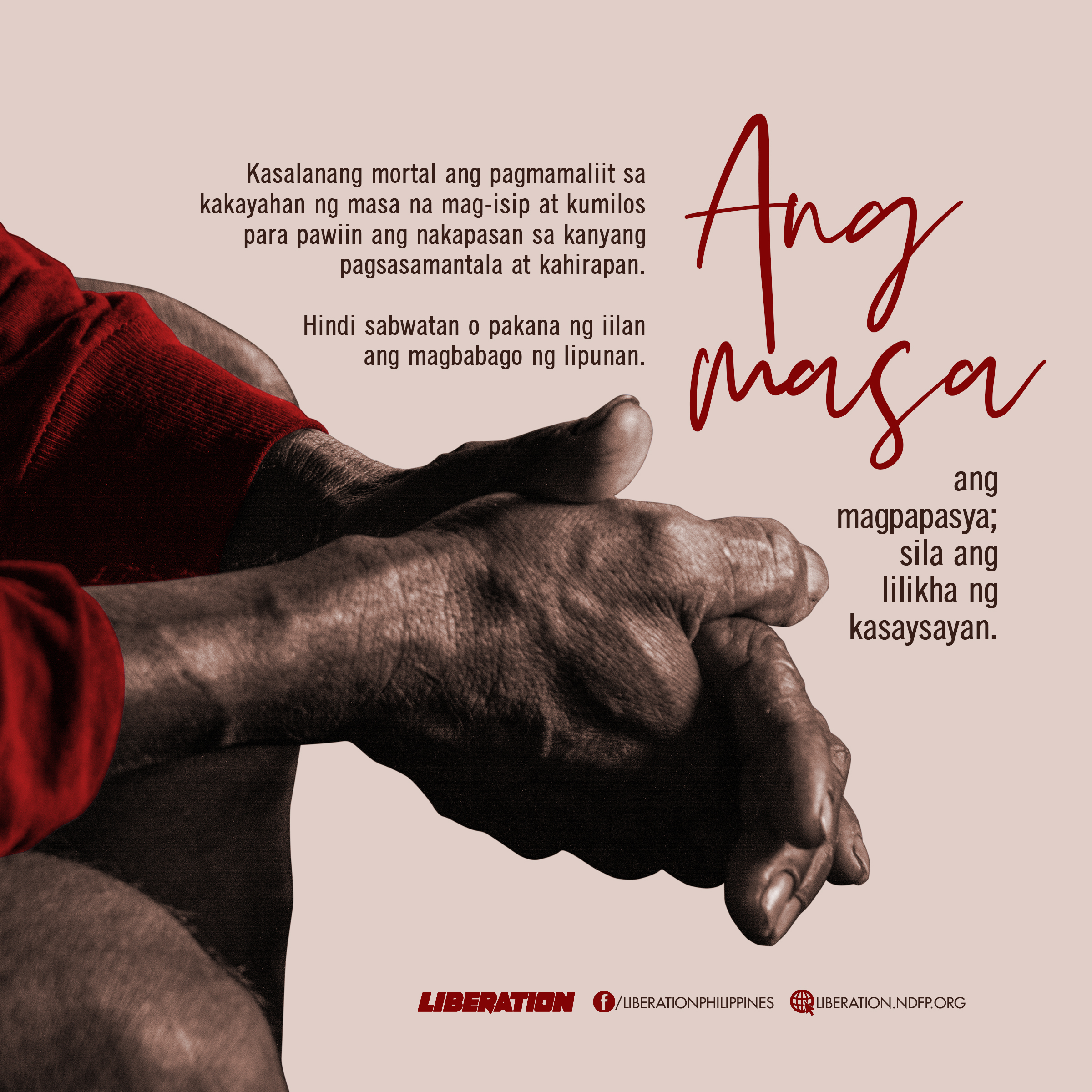
by Vida Gracias
“Communists do not conceal their aims,” the Communist Manifesto has put it. Yet the Communists have always been demonized and malicious lies are woven about them. It is for this reason that Marx and Engels always made public their views, aims and tendencies as stated in the Communist Manifesto.
And so it is with the Communist Party of the Philippines (CPP), which on December 26 marked its 50th year of leading the national democratic revolution in the Philippines. Called the longest-running revolution in Asia, if not in the entire world, the CPP-led revolutionary movement has been consistent in calling for the overthrow of the landlord-comprador state in the country and from its ruins set up a people’s democratic state.
Since its founding, the CPP has stuck to its basic strategy of waging a protracted people’s war, building up a people’s army and revolutionary bases in the countryside, and seizing political power, wave upon wave, from the countryside to the cities. It is a strategy that every revolutionary adheres to in this semi-colonial and semifeudal country.
Armed uprisings in the cities, particularly in the national capital region, will occur in the final offensive, when the revolutionary forces shall have already smashed reactionary power in the countrysides and all that is needed is the capture of the capital.
The CPP has stated that, at this time, it is still far from winning total victory. But tactically a regime change, an ouster, is possible. And the CPP has never concealed the fact that it is calling for the ouster of Duterte. It is out there in public—never secret, never conspiratorial—hence, what plot?
The “Red October Plot” was supposedly to roll until December to become the “White December Plot”. Then another name, “Operation Talsik”, was added to it. This only shows that communist hysteria is an old trick and those who rely on it are lacking in ideas or out of touch with reality.
No need for plot
The CPP is a revolutionary group of long standing. It has no need for plots that distort its aims and sow confusion in its ranks. It does not dabble in conspiracies, much less belittle the movement of the masses as the primary movers of history.
The people decide the fate of a regime. This is no more true than the people power uprising that overthrew the hated dictatorship of Marcos in 1986 and the corrupt regime of Estrada in 2002. Even as the past regime of Gloria Macapagal-Arroyo belittled people power as merely a “mob” or “political noise,” the mass movement had succeeded in thwarting Arroyo’s scheme towards charter change and stopped her from extending her term.
Meanwhile, all the economic and social conditions are ripe for the overthrow of the Duterte regime. The CPP’s role is to point out to the masses where to head in that direction, urging them to hone their tactics and expand their strength, and will not take credit for the regime’s overthrow because the victory belongs to the people. You can read and debate about the need for Duterte’s ouster even in the internet. That is hardly a plot.
That the Duterte regime keeps harping on a “plot” by the CPP bespeaks of either two things: one, on how low in intelligence his political and military advisers have become, not excluding Duterte himself; or, two, the lies and distortions are intended to break up the broadening united front against the regime’s growing tyranny and dictatorship, where even noncommunists are calling for his ouster.
Critical mass
All this red-tagging is meant to put the national democratic mass movement on the defensive, isolate and demobilize it, knowing that the national democrats are at the core of the critical mass that can oust the Duterte regime. The regime’s greatest fear is for this critical mass to resonate in the military, whose rank and file are not immune to the sufferings of the masses and can move them to withdraw support from the regime.
Throughout several regimes, the national democratic mass organizations have persevered, built, expanded and maintained their strength from among the workers, peasants, urban poor and students. They have forged alliances with the middle forces and various political groups. They have worked within Moro and indigenous communities. They are in the forefront of the mass struggles for better living and working conditions, human rights, and a host of other issues. They have flexed their muscles not just in the parliament of the streets but also inside Congress, in international fora, and, across the peace negotiating table for meaningful reforms.
Notwithstanding Duterte’s unilateral termination of the peace talks with the NDFP in November 2017, the latter has put forward its substantive agenda for social, economic and political reforms. The Duterte regime was readily exposed as a false pretender and not desirous of solving the decades-old armed conflict in the Philippines.
Also, instead of weakening their ranks and crumbling under fear of Duterte’s killing spree and red tagging, the mass organizations within Bayan (Bagong Alyansang Makabayan) in Mindanao launched on October 23 simultaneous rallies in the cities of Davao, Butuan, Cagayan de Oro and General Santos. Some 15,000 marched to call for an end to martial law in Mindanao and the ouster of the US-Duterte regime.
A barrage of protests against Duterte was also held in 14 regions last September 21, on the 46th anniversary of Marcos’s martial law declaration. In Manila, flags of various colors flew in Luneta as thousands warned of a creeping dictatorship—“another dictator to rise or an old one to return.”
Overseas, where there are Filipinos and solidarity allies, the protests have been brought to the courts of public opinion. In August the International People’s Tribunal (IPT) in Brussels judged President Duterte guilty of crimes against humanity. An indictment against Duterte (also including US President Donald Trump, the International Monetary Fund [IMF], World Bank [WB], and World Trade Organization [WTO]) was led by Bayan and its allied organizations for violations of the Filipinos civil and political rights, social and economic rights, and right to self-determination. The IPT verdict was then submitted to the Parliament of the European Union and the International Criminal Court.
Granting that communists may have joined these organizations, why freak out? This is the age of the millennia. Anything and everything you wanted to know about communism is one google away. People are learning more about national democracy. People’s organizations are bound by their charter and whoever subscribes to it is free to join, whether communist or not.
The Cold War era is past. The Anti-Subversion Law has been repealed where membership in the Communist Party is no longer illegal. Even the government talks to communists of all stripes, whether local or foreign, whether in power or out of it, whether revolutionary, revisionist or collaborationist. No one can be arrested for just being a communist.
That is why the reactionary state plays foul. It has associated “terrorism” to communism because by ideology one cannot be faulted for being a communist. It has criminalized political actions—whether led or not by communists—through trumped up charges of illegal possession of firearms and explosives.
Truth is, the anti-communist hysteria no longer sticks. It’s been 50 years of revolutionary war in the Philippines and the reactionary state is still up to its old tricks. It is the fear of fascism, not communism, that makes people rise up in anger.
Regime backtracks
Duterte’s military brass simply allowed itself to become the laughing stock of the nation. In no short time it backtracked from what founding CPP chair Jose Maria Sison called a “fairy tale” as Defense Secretary Delfin Lorenza admitted “there is no more Red October plot”.
But Chief Legal Counsel and Presidential Spokesperson Salvador Panelo would not let the issue die. While he nailed it when he said “the threat to oust Presid9ent Rodrigo Duterte is always possible”, one can expect more ridiculous tales to surface.
As always, the Armed Forces of the Philippines (AFP) cannot win the propaganda war because it sees monsters where there are none. The monsters come from within the state it serves. The AFP is blindsided by its loyalty to Duterte and to the counter-insurgency plan of the US, in fact just all self-serving.
An advice to the men and women of the military: get real. Look at the true conditions of the people that you are sworn to serve and you will know why Duterte must go.


